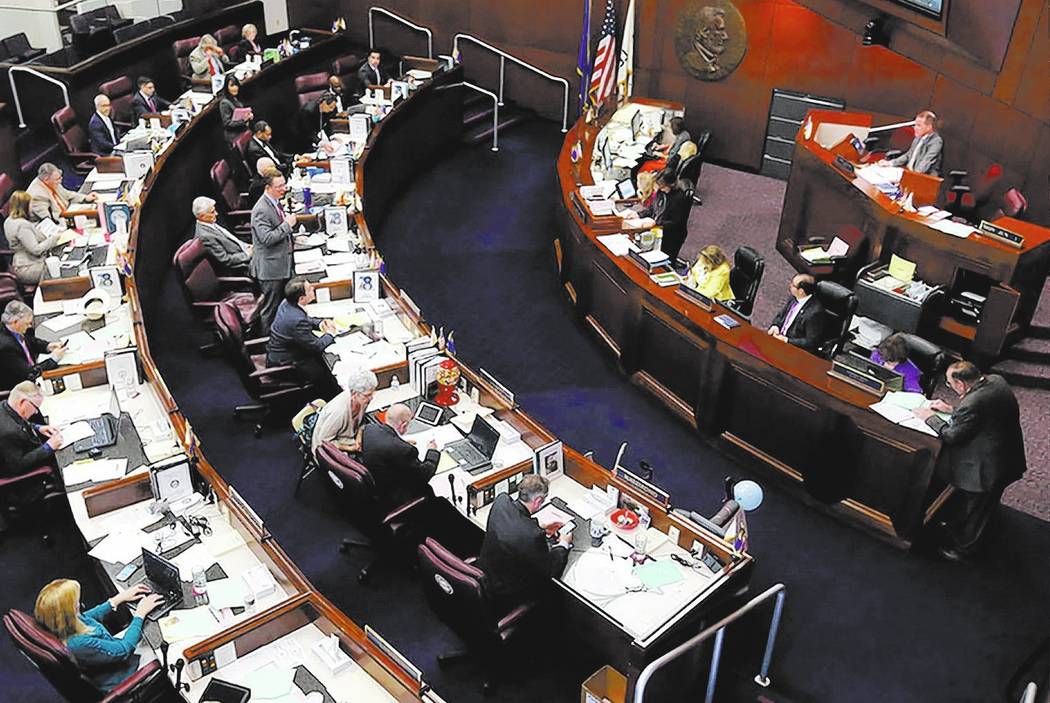COMMENTARY: Majority Leader Aaron Ford is correct to defend fellow Nevada lawmakers Heidi Gansert over separation of powers issue
After Senate Majority Leader Aaron Ford recently came to the defense of Republican state Sen. Heidi Gansert, who also does outreach work for UNR, he came under fire in a Review-Journal editorial. The paper suggested that Ford must have slept through his constitutional law classes in law school since he apparently does not understand that state employees are barred from serving in the Legislature under Article 3, Section 1 of the Nevada Constitution, the separation of powers clause.
As a professor of constitutional law, I would give Ford an “A.”
Almost all states have such a separation of powers clause in their constitutions. These provisions are meant to prevent each branch from performing the functions of the other branches — and rightfully so. While such clauses exist nearly universally, only around half of states in fact disallow members of the legislature from holding, or sometimes taking or being appointed to, positions of employment with the state. And such states rely on explicit prohibitions found in statutes passed by the legislature, or on separate and more specific clauses in their constitutions that prohibit state employees from service in the legislature — not the separation of powers clause.
In fact, one of the only cases that even addresses connecting separation of powers clauses and state legislators serving in the executive branch is from Mississippi where that state’s high court ruled that unless a person’s functions were “at the core” of power properly belonging to one of the other branches of government, there was no violation of separation of powers. That court would require that “the acts are ‘ongoing and are in the upper level of governmental affairs’ and have a substantial policy-making character.”
The Mississippi court determined that the legislature could not enact statutes providing for the appointment of legislators to state commissions that performed executive functions implementing policy embodied in enacted law. Such a statute violated the separation of powers. By analogy, it is thus likely that a Nevada legislator could not serve on the Public Utilities Commission or the Board of Regents; to do so would violate Article 3 of the Nevada Constitution.
The two Nevada cases that have arisen to date, however — one involving an IT employee for a state agency and the other involving Gansert, a higher education employee — do not at all fit in with having “a substantial policy-making character” in the “upper echelons of governmental affairs,” let alone appointed positions with executive authority.
The other truly relevant case is the Nevada Supreme Court’s 2004 Heller v. Legislature decision. The court declined to answer the constitutional questions on grounds that the separation of powers actually prohibits courts from ousting executive branch employees from the Legislature, since under Article 4 of the state constitution the Legislature has the power to set qualifications for service. The Heller case did contain dictum suggesting that the separation of powers question might be justiciable on other facts. But if the state constitution is properly read as committing to the Legislature the scope and meaning of legislator qualifications — such that the courts would violate separation of powers if they sought to resolve the issue — the implication is that separation of powers issues related to the state employment of legislators are non-justiciable political questions.
Even if courts followed the Nevada Supreme Court dictum suggesting that the dual service issue could be raised under the separation of powers against “any executive branch employees invested with sovereign power,” there simply isn’t a case throughout the entire nation where a state employee has been removed as an employee of the state under a separation of powers clause.
The lack of case law rulings to date reflects that it is unlikely that Nevada courts would find a new level of meaning in a general separation of powers clause that has roots in the Massachusetts state constitution written by John Adams.
Thomas McAffee is a professor at UNLV’s William S. Boyd School of Law.

















